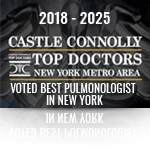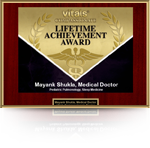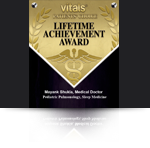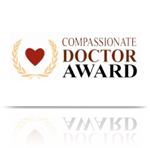Ready to Schedule an
Appointment with Dr. Shukla?
Stages of Sleep
Stages of Sleep: REM & Non-REM Sleep Stages
Most people have heard of REM (Rapid Eye Movement) sleep, but not as many are familiar with the rest of the stages of the sleep cycle. The stages of sleep are divided into REM sleep and NREM (Non-REM) sleep, but there are actually additional subdivisions within the sleep cycle.
In fact, in addition to the REM sleep stage, there are four stages of non-REM sleep that your body goes through. Understanding the stages of sleep can help detect a sleeping disorder as well as improve your sleep hygiene.
Non-REM Sleep
The non-REM sleep stages of sleep can last anywhere from five to fifteen minutes each in a person who is not affected with a sleep disorder. As you sleep, your body moves through each stage on its way to REM sleep, after which the cycle begins again until waking.
During non-REM sleep, you typically do not dream, and your muscles are as ready as ever. In a nutshell, you are resting, but you are not yet asleep during non-REM sleep. You have to get through this stage to get to the deeper stages of sleep, and the trouble emerges when you demonstrate an inability to do so.
Stages of Sleep
- Sleep Stage 1 is the easiest stage of sleep to be awakened from. Although there is a reduction in activity between this stage and wakefulness, you may feel like you haven’t slept at all if awakened during this time. It can last between five and ten minutes, and is the stage of sleep in which you may experience the sensation of falling (known as hypnic myoclonia).
- During sleep stage 2, your body begins to prepare for deep sleep. Your muscles will go through periods of tone and relaxation during this stage. Your heart rate begins to slow and your body temperature decreases as well.
- The third stage of sleep is the first phase of deep sleep. During this stage, your body repairs and regenerates tissues. This may include bone and muscle building and a boost to your immune system. If awakened during this time, you may feel disoriented.
- Sleep Stage 4 is similar to stage 3, although it is more intense.
Older individuals get less deep sleep than younger people, which helps explain the increased difficulty in healing and fighting disease as we age. Those suffering with conditions like sleep apnea may also suffer from the symptoms of sleep deprivation.
REM Sleep
Although the name is widely known, many people may not be aware of the characteristics of REM sleep. In addition to the eye movement that gives this stage its name, REM sleep is marked by brainwave patterns that resemble those recorded while awake. Your heart rate and breathing will speed up during this time, unless you have a sleeping disorder. This is the portion of sleep during which you experience the most intense dreaming.
Although your brain is more active during the stages of REM sleep, your voluntary muscle groups become paralyzed during this phase. Because of these contrasting features, researchers often refer to this stage as paradoxical sleep.
REM sleep usually lasts about 10 minutes during the first sleep cycle and gradually increases throughout the night, up to one hour during the final sleep cycle of the night. Infants spend up to 50 percent of their sleeping time in REM sleep, whereas adults spend only about 20 percent of their time in this phase.
How Many Hours of Sleep Should You Get?
In the morning, the electrodes are removed, and you will leave the sleep center. You will be given an appointment for a follow-up visit with the doctor to explain and interpret your results. You can return to your usual activities following polysomnography.
In addition to helping diagnose sleep disorders, polysomnography may be used to help adjust your treatment plan if you’ve already been diagnosed with a sleep disorder.
- Increased Pain
- Impaired Memory / Cognition
- Fatigue
- Depression
- Weakened Immune System
- High Blood Pressure
- Heart Attack
- Stroke
- Obesity
- Diabetes
- Heart Failure
- Arrhythmia (Irregular Heartbeat)
Get a Top Rated Sleep Doctor in Brooklyn, New York
A good night’s rest is essential to a healthy and long life. If you are suffering with sleeplessness or demonstrate any sign of one of the sleep disorders listed above, you owe it to yourself (and your loved ones) to get the help you need. No one will take the necessary steps for you – it’s up to you to ensure you are getting the right amount of rest.
Don’t suffer with sleepless nights. Sometimes poor quality sleep may be due to sleeping disorders that needs to be detected and treated. Let Dr. Mayank Shukla help you improve your quality sleep by detecting your sleeping disorder. Visit his New York Sleep Center today.
The only way to get past sleep deprivation (and its associated problems) is to get enough sleep. If you are routinely not getting enough sleep due to a sleep disorder, Dr. Shukla can develop a course of treatment to give you restful nights and active days. The first step in getting a good night’s rest is to contact Dr. Shukla’s New York Sleep Center for more information, today.
Awards and Recognition
Dr. Mayank Shukla Top-Rated Pulmonologist 2018 - 2025
















